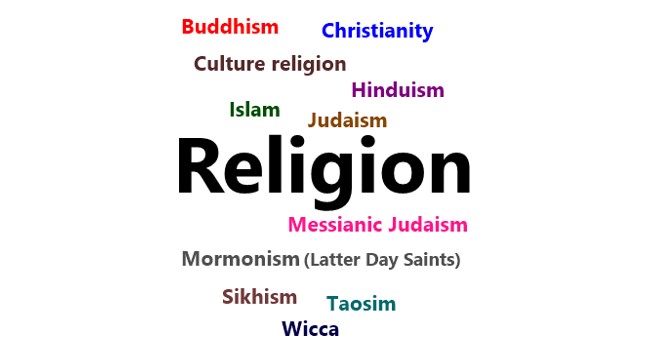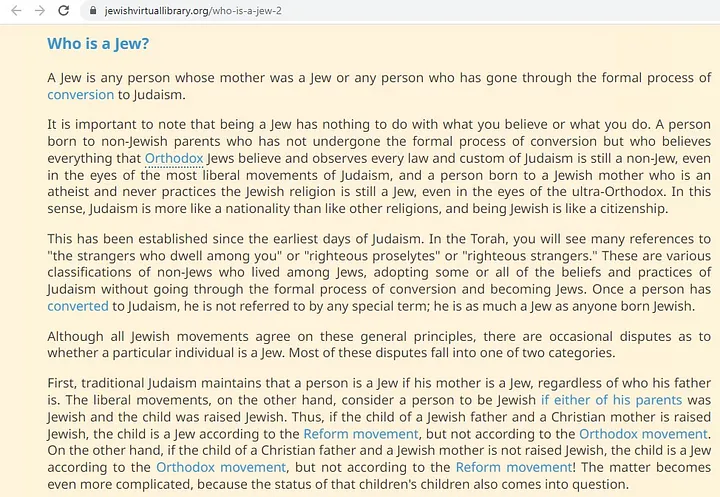
Is any form of theism safe for the LGBTQ community? I ask because members of the LGBTQ community face fierce opposition from adherents of particular brands of theism. The latter are opposed to the former’s very existence, which is why the former boldly celebrate their existence during the month of June.
So, again I ask, is any form of theism safe for the LGBTQ community?
In order to answer that question, one has to consider the different brands of theism in existence. So, let’s begin doing that.
![]()
First up is Polytheism. Adherents of this brand believe in the existence of multiple deities, and they get to choose to worship one or more such deities. An example of polytheism is featured in the movie Indiana Jones and the Temple of Doom.
In the movie, the main villain Mola Ram worships the Hindu deity Kali. Ram obtains stones that represent the Hindu deity Shiva, and he uses the stones to promote Kali, thus betraying Shiva.
At the end of the movie, as Ram and Jones wrestle each other for a bag containing the stones, Jones uses his knowledge of Hinduism to defeat Ram. First speaking in Hindi and then in English, Jones says aloud to Ram, “You betrayed Shiva!” If you have seen the movie, then you know what happens once Jones invokes the name of Shiva.
So, is polytheism safe for the LGBTQ community ? It is possible from an earthly perspective, but one should be careful not to betray a deity, unless one wants to become crocodile food. Sure, Indiana Jones and the Temple of Doom is a fictional story, but just in case . . .
![]()
Next up is Henotheism. Adherents of this brand of theism will tell you that they worship only one deity. What they might not tell you is that they believe in the existence of more than one deity.
German philosopher Max Müller coined the word Henotheism, and he described it as “monotheism in principle and polytheism in fact”.
One group of Henotheism adherents believes in the existence of both a Heavenly Father and a Heavenly Mother.
The same group also believes that Lucifer started out as the spirit-brother of Jesus, thus making Lucifer a type of deity. Plus, this group believes in the existence of God the Father, God the Son and God the Holy Spirit, but the group insists that the Father, Son and Holy Spirit are three separate deities in essence.
So, is Henotheism safe for the LGBTQ community?
I know of only one group that adheres to Henotheism, and its history indicates that it is not safe for the LGBTQ community.
![]()
Next up is Unitarian Monotheism. Adherents of this brand believe that only one deity exists, that only one deity has ever existed, and that only one deity will ever exist.
The adherents believe that the one and only deity exists in only one form. Also, the adherents tend to believe that being born into their particular ethnic group makes one automatically accepted by the deity. Otherwise, people have to earn acceptance by obeying certain laws.
Is Unitarian Monotheism safe for the LGBTQ community?
Well, the version called Islam has historically been physically unsafe. Yes, in some parts of the world, physical safety exists, but Islam remains theologically unsafe for members of the LGBTQ community.
In contrast, a majority of Jews are Unitarian Monotheists, and some Jewish groups are safe for the LGBTQ community, as I have witnessed on Twitter.
![]()
Now, we come to Triune Monotheism. Adherents of this brand believe that only one deity exists, that only one deity has ever existed, and that only one deity will ever exist. The adherents also believe that the one and only deity has been revealed in the forms of Father, Son and Holy Spirit, with the three forms being the same deity in essence.
Is Truine Monotheism safe? The answer depends on which version that one is talking about.
![]()
One version of Truine Monotheism is called Messianic Judaism. Ironically, adherents of this version are in need of safety. Not only are they attacked by antisemitic non-Jews, they are also attacked by Jews of the Unitarian Monotheism brand, with the latter calling the former heretics.
Originally, a Jew was simply a descendant of the biblical tribe of Judah. Eventually, the word Jew was used to describe any member of the ancient nation Judea, which later became called the nation of Israel.
As for a modern definition of Jew, the American-Israeli Cooperative Enterprise (AICE) states the following:

The above-shown description states, “It is important to note that being a Jew has nothing to do with what you believe or what you do. . . a person born to a Jewish mother who is an atheist and never practices the Jewish religion is still a Jew, even in the eyes of the ultra-Orthodox.”
In his commentary Outreach to Jewish Secularists and Atheists, Rabbi Harold M. Schulweis writes, “Secular Jews, atheist Jews and agnostic Jews produce no shock. In fact, they comprise the largest constituency of the Jewish people.”
So, if one can be both a Jew and an atheist, then it stands to reason that believing that Y’shua/Jesus is the Messiah does not prevent one from being a Jew. Yet, Jews who believe that are ostracized by other Jews.
As a non-Jew, I am inclined to just let Messianic Jews and other Jews fight it out among themselves.
As for the question, “Is Messianic Judaism safe for the LGBTQ community?” I will answer this way: I do not know.
It is possible that Messianic rabbis are divided on the issue of the LGBTQ community.
What I do know is this: Messianic Judaism does not exclude non-Jews from being accepted by deity without having to earn acceptance. That sort of thing upsets people who are opposed to non-Jews being accepted by deity without having to earn acceptance.
![]()
Finally, we come to the version of Truine Monotheism called Christianity.
This version is quite complex in practice. The first people to be labeled Christians were primarily Messianic Jews. As the Messianic faith grew, non-Jewish members began to outnumber the Jewish members. This situation became a problem after the last of the biblical Apostles died.
The Messianic faith practiced and taught during the 1st Century CE was not antisemitic. That all changed once the biblical Apostles were gone.
Althought the Gospel recorded in the New Testament did not change, the practice by the non-Jewish Christians did. They retained the name Christians for themselves, but they contradicted the Gospel by drifting into antisemitism. At first, they could not legally do anything to harm Jews or anyone else they were opposed to.
Then came the marriage of Church and State courtesy of the Roman Emperor Constantine. Now having the backing of the State, the non-Jewish “Christians” had free reign to persecute Jews or anyone else they were opposed to.
Thus, the version of Christianity supported by the State was definitely not safe for Jews. Over time, the version became unsafe for people born gay.
In short, the only way that one could be safe was to support the version of Christianity that the State declared to be valid.
![]()
Even after Christian churches gained freedom from State control, they remained unsafe for plenty of people. Blind to their ethnocentric thinking, church leaders interpreted the Bible in ways that pleased their desires, traditions and cultural beliefs.
In North America for example, white Christian clergymen often excluded non-white people — as well as Jews — when it came to loving their neighbors as themselves, thus rejecting the Messianic faith as it was practiced and taught during the 1st Century CE.
The farther away that white man’s “Christianity” got from its cultural and historical roots, the more dangerous it became to Jews and other marginalized people, including the LGBTQ community.
![]()
Today, some Christian churches and theologians are taking a closer look at the context of Bible verses that allegedly exclude members of the LGBTQ community from receiving God’s grace. They reject the anti-science, anti-history, anti-academic mentality that is present in churches that condemn members of the LGBTQ community.
The former affirm the Gospel as it is presented in John 3:16, Romans 10:8–13 and 1 John 5:13. These verses indicate that one can have saving faith in Messiah Jesus even if one is a member of the LGBTQ community.
As a result, members of the LGBTQ community can find safety in LGBTQ-affirming churches and denominations. Among the latter is the United Church of Canada, as well as the US-based denominations the United Church of Christ, Episcopal Church, Presbyterian Church (USA) and Evangelical Lutheran Church in America.
No, the aforementioned denominations are not apostate. They merely reject the ethnocentric interpretation of the Bible used by opposing churches.
The “Wanted” posters say the following about David: “Wanted: A refugee from planet Melmac masquerading as a human. Loves cats. If seen, contact the Alien Task Force.”
















